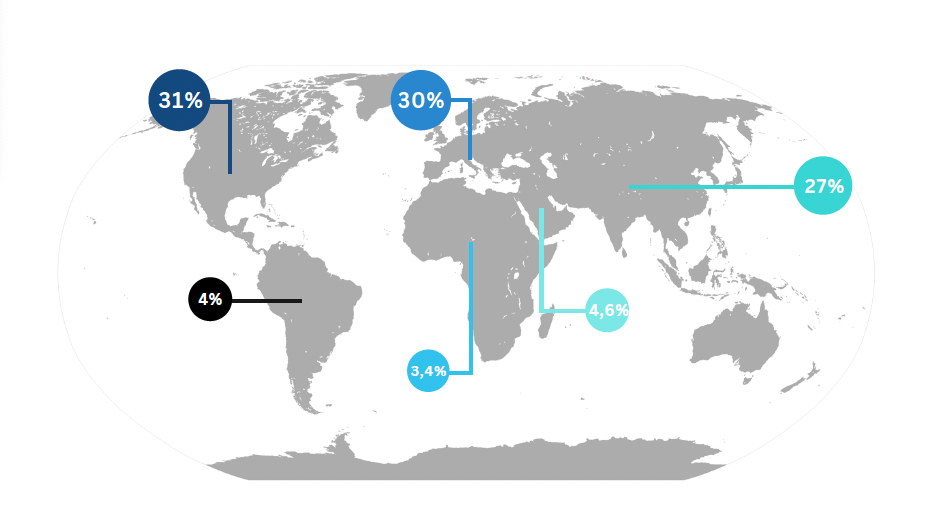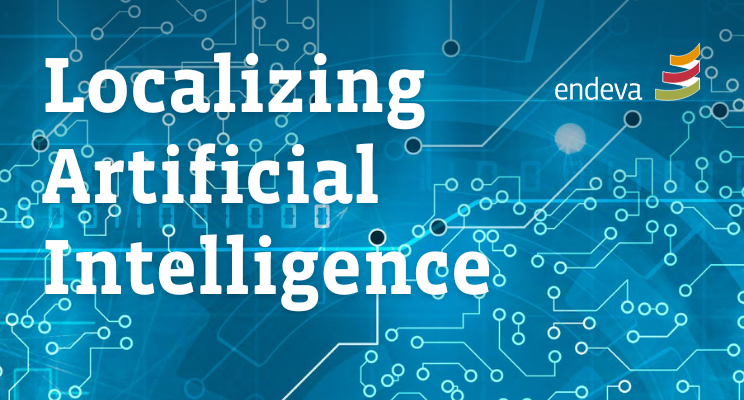Artificial intelligence (AI) it is one of the most impactful technological developments today. As we stand on the brink of the AI revolution[1], it is crucial to ensure that Low- and Middle- Income Countries (LMICs) are not (once again) left behind in the race to benefit from these technological advancements.
This is where the concept of localizing AI comes into play. We argue that the localization of AI can not only ensure that benefits of AI are distributed more equitably across the globe, but it can also result in AI solutions that are more effective and context-specific.
From delivering medical supplies via autonomous drones to providing more accurate credit scores for farmers, AI has the potential to bring significant benefits to residents of LMICs with applications in agriculture and food systems, healthcare, energy, mobility and other sectors.
Still, AI development is mainly focused in the Global North, particularly in the USA, with India and China being the exceptions (see figure 1).
Figure 1: Number of AI-related companies and organizations by continent

Source: https://aiafricareport.gumroad.com/l/State_of_AI_in_Africa_2022
Localizing AI is about recognizing the importance of where and how AI models are developed. Although AI development centralization is tempting for cost-effective reasons, it presents challenges. The most pressing challenge is bias.
Biases in AI can be insidious; even seemingly neutral data can unintentionally propagate stereotypes. For instance, Amazon’s former recruiting tool prototype appeared to favour male applicants despite efforts to remove gender identifiers. Instances like these are not isolated, and they affect people’s lives in several forms whether or not they choose to use AI.
Despite the work being done to reduce biases in machine learning, all AI models inherit assumptions and beliefs from their creators. This makes the complete elimination of biases impossible, and it puts into question the effectiveness of AI solutions.
Challenges faced in the Global South differ profoundly from those in the Global North and require innovative, context-specific solutions. Acting locally adds context to the challenge and provides nuances that would otherwise be lost. Global tech companies have realized this in the last few years and have started to establish local research centers such as IBM in Kenya and South Africa, Google in Ghana and Intel in India.
Figure 2: Overview of benefits of localized AI solutions for LMIC

Source: https://endeva.org/publication/localizing-artificial-intelligence
Benefits of localized AI solutions for LMICs go beyond promoting diversity and inclusion. They can give LMICs ownership and control over technological developments, create economic opportunities and future-fit jobs and result in AI solutions that are more relevant and effective.
If we want to empower LMICs to localize AI systems in the Global South, we first need to understand which elements determine the success or failure of localized AI systems. Stay tuned for our next blog post to explore how we can visualize system dynamics and identify intervention areas by using a systems map.
For those who wish to dive deeper into the topic, a working paper titled “Localizing Artificial Intelligence – A call for more effective AI solutions, authored by Stefan Dehm & Christian Pirzer is available at the following link.
This post has been written by Christian Pirzer, Managing Director at Endeva, and Eleonora Ricco, Analyst at Endeva
[1] https://www.weforum.org/agenda/2024/01/ai-artificial-intelligence-governance-regulation/


